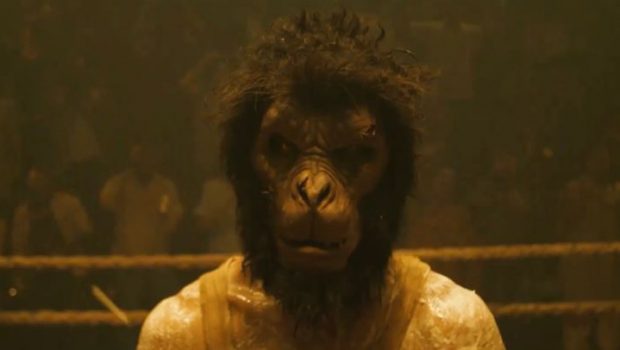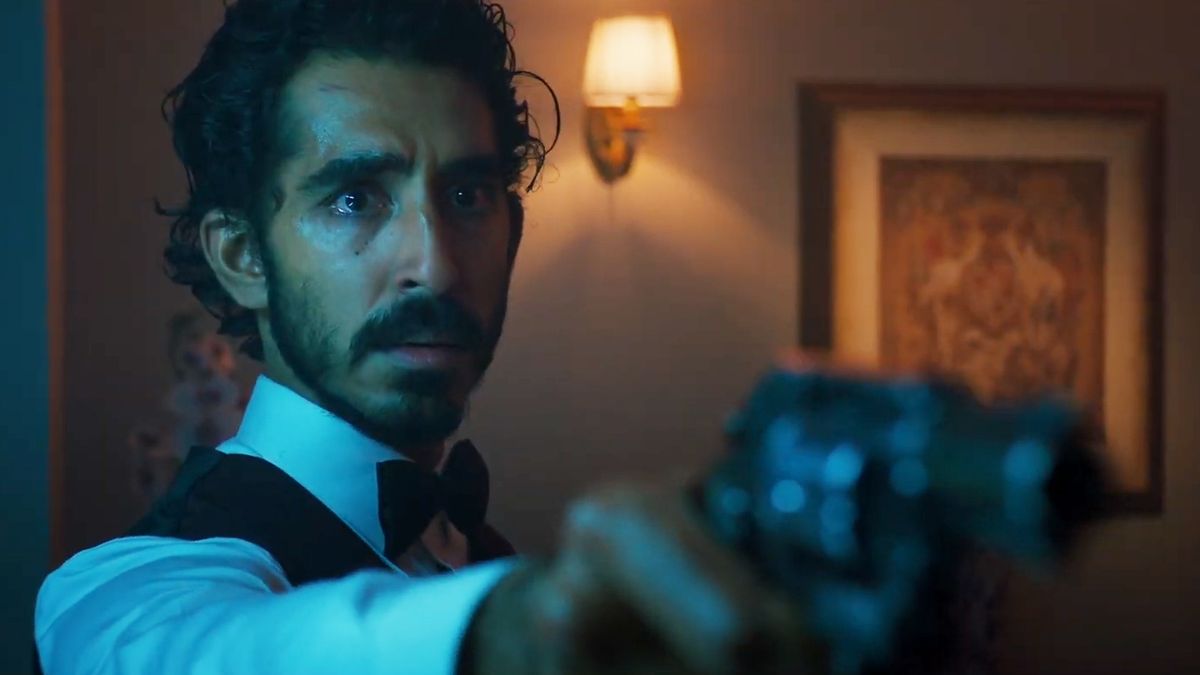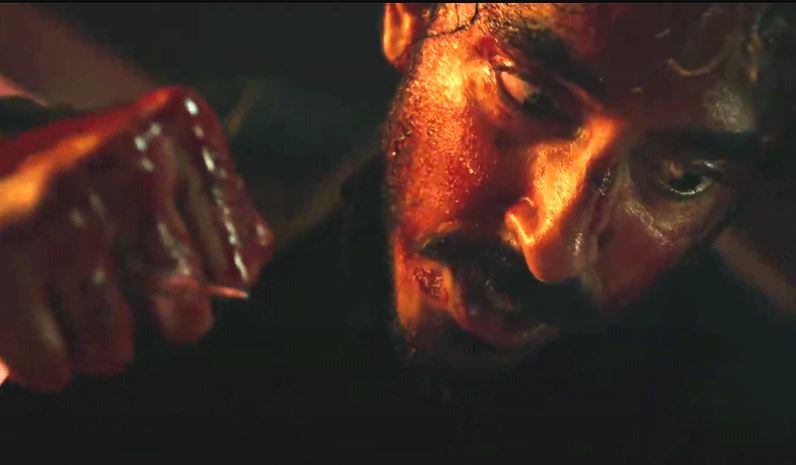Monkey Man – Film Review
Reviewed by Harris Dang on the 3rd of April of 2024
Universal Pictures presents a film by Dev Patel
Produced by Dev Patel, Jomon Thomas, Jordan Peele, Win Rosenfeld, Ian Cooper, Basil Iwanyk, Erica Lee, Christine Haebler, and Anjay Nagpal
Written by Dev Patel, Paul Angunawela, and John Collee
Starring Dev Patel, Sinakdar Kher, Ashwini Kalsekar, Makarand Deshpande, Sobhita Dhulipala, Sharlto Copley, Pitobash, and Vipin Sharma
Edited by David Jancso and Tim Murrell
Running Time: 113 minutes
Rating: MA15+
Release Date: the 4th of April 2024
Monkey Man starts off with a sweet, poignant bonding moment between a mother and a son. The loving mother eloquently regales to her son the mighty legend of Hanuman, a Hindu deity that is the embodiment of bravery, virtue, and justice – a protector of the people. But in a streak of the worst luck, his village is attacked by corrupt officials, resulting with countless deaths, including his mother.
The son grows up (named Kid in the credits, played by Dev Patel) with simmering rage in his heart and sets his targets on those who wronged him. Those include the newly appointed chief of police Rana Singh (the imposing Sinakdar Kher). We also have the malevolent Queenie (the icy and acerbic Ashwini Kalsekar), the manager of a high-class brothel (with the beautifully melancholic Sobhita Dhulipala as a sex worker of tragic circumstance). Finally, we have Baba Shakti (the compellingly enigmatic Makarand Deshpande), the guru/power-hungry politician who prioritises land takeovers above the voice of the people. However, the quest for revenge becomes bigger than himself when Kid becomes the saviour of the impoverished, who rely on him to bring true justice for all.
Monkey Man is the directorial debut for Dev Patel who is best known for his acting debut in the acclaimed teen drama Skins until his film breakthrough as the lead role in Slumdog Millionaire (2008) by Danny Boyle and Loveleen Tandan. He has declared on numerous occasions that Monkey Man is a love letter to the action cinema that he cherishes, and it is also a primer to a culture that he wants to share with the world. Given the many opportunities for reverence through cinema and culture, does Dev Patel make a name for himself as a filmmaker in Monkey Man?
If there is one word to describe the experience of Monkey Man, it is visceral. Patel really wants the audience to feel the simmering anger, the innate passion of his characters just waiting for their spark to be reignited. With upfront cinematography by Sharone Meir (who last worked on John Woo’s Silent Night, 2023), a propulsive score by our very own Jed Kurzel, frenetic editing by David Jancso and Tim Murrell, and blistering fight choreography by Brahim Chab (who has worked with action stalwarts like Jackie Chan, Donnie Yen, Jean-Claude Van Damme, Scott Adkins, Yuen Woo-ping, Jason Statham and others), the energy is powerfully felt from frame one.
The energy is also felt in Patel pays cinematic reverence to action genre cinema. Since the film features Dev Patel dressed in a suit, opening a can of whoop-ass on goons, people are automatically inclined to think he film owes a huge visual debt to the John Wick franchise (in which the film namechecks it as a joke). While there are infinite action films that feature guys kicking ass in suits, Patel owes more of a visual debt to Korean action flicks.
From the bathroom and nightclub settings in The Man From Nowhere (2010), the bar in the brothel setting that is reminiscent to the bar in A Bittersweet Life (2005), to the hotel floor that is reminiscent of the penthouse in Oldboy (2003), Patel pays respect to the past and yet it never comes across as pandering nor self-glamourising. It comes across as an homage as opposed to coming off as recycling.
As for the set-pieces, Patel and fight choreographer Brahim Chab aim for simple, direct combat that gradually veers into feral rage, peppered with glimpses of grace and beauty. Patel (who is a black belt practitioner in taekwondo) handles the choreography just as well as his acting – with commitment, sheer will, and looking like a natural on-screen. The John Wick films aimed for clarity, long takes, spick-and-span composition and having its camera be an observer to all the mayhem like in Hong Kong cinema.
Yet Patel aimed for tenacity, inescapably tangible composition and having its camera be a participant to the mayhem – very much like the cinema of Indonesian action films from Gareth Evans and Timo Tjahjanto. The approach to grit and suffering before triumph is immersive and has an incredibly palpable sense of vitality, which not only thrills on a genre standpoint but it immerses you effectively into the mindset of its titular character. It also nullifies the problems of having the fights being overly choreographed and resembling a dance, which would look out of place here.
Thankfully, action and cinematic reverence is not the only thing on Patel’s mind. The story does take on mythology that gives credence to the titular character being an action hero as well as allowing an entry into social commentary on condemning corruption in governments. In fact, the reason why the film was delayed was because Netflix (which had the rights at the time) was afraid that the film’s portrayal of right-wing characters would offend the Indian government. Therefore, the rights were sold back to the producers and then to Jordan Peele, who would go on to help give the film a cinema release.
However, the way Patel meshes mythology and social commentary is effectively blatant and in-your-face (the integration of real-world violence in India certainly lays out Patel’s argument) in its intent yet scrappy in its execution. The introduction of the hijra community (loosely known as “third gender” – consisting of trans women, gender-fluid, intersex) led by temple priestess Alpha (the warm Vipin Sharma) as a haven and motivator for our titular hero (which leads to a satisfying training montage). The introduction of said culture adds a refreshing view to the narrative, but it does slow down the momentum in the storytelling.
With visual nods to David Lynch (through the visual cue of literally tearing open orifices to reveal a portal) to narrative nods to Conan the Barbarian (both films involve avenging the deaths of genocide) and acting nods to Wong Kar-wai films (actors share glances to each other that spell more than pages of exposition ever could), the story has more than enough spit-shine to make it feel refreshing and relevant – even if the presentation can be esoteric and somewhat incoherent to general audiences.
Overall, Monkey Man is a blisteringly furious directorial debut from Dev Patel that serves as an action-packed showcase for himself as both actor and filmmaker. It is a glorious love letter to action cinema, and a powerfully cinematic diatribe to government corruption. Highly recommended.
Summary: A glorious love letter to action cinema, and a powerfully cinematic diatribe to government corruption. Highly recommended.









